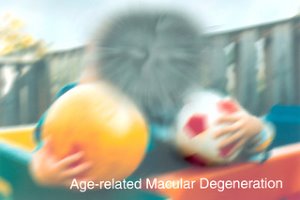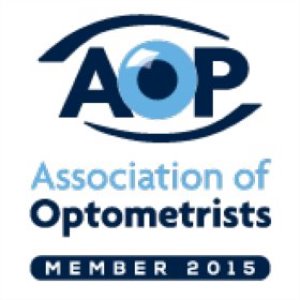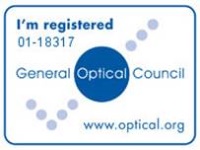
AMD – loss of central vision;
(courtesy of National Eye Institute)
Age-related Macular Degeneration (AMD) is a disease of the eye that affects mainly elderly patients.
Dry AMD
This is the more common of the two types. It is when the central visual receptors at the back of the eye become progressively damaged. It is a slow developing pathology that can eventually lead to total loss off central vision.
A person at the end stage of dry AMD will be left with a central hole in their vision, thus only being able to see if they use their peripheral sight by looking around this black hole.
Wet AMD
This is much less common, but unlike the dry type, wet AMD can cause much damage to the affected eye in a very short space of time. About 10% of macular degeneration is of the wet type. Urgent action is required to prevent substantial loss of vision.
Smoking is a high risk factor in developing dry AMD, as is poor diet and genetic predisposition. Regular eye examinations by your Optometrist can monitor any macular changes, and advice may be given on preventative action that one may wish to undertake to try and reduce the disease progression.
At TOTAL EYECARE, Nirmal Sekhon, the resident optometrist, takes dry macular changes very seriously, as he understands the devastating effect it can have upon his patients.
Macular examination by direct examination, or by Macular Field Testing, allows him to monitor any changes that may occur when patients start to change their lifestyle. There is much evidence to suggest that dietary changes can help reduce the effect of the progression of the disease.
Please contact us if you have any concerns over Age Related Macular Degeneration.






